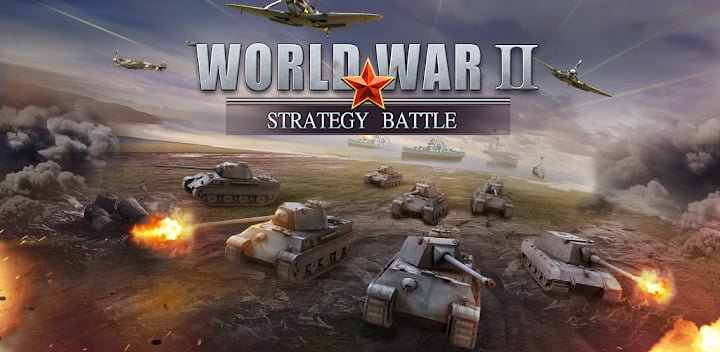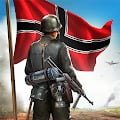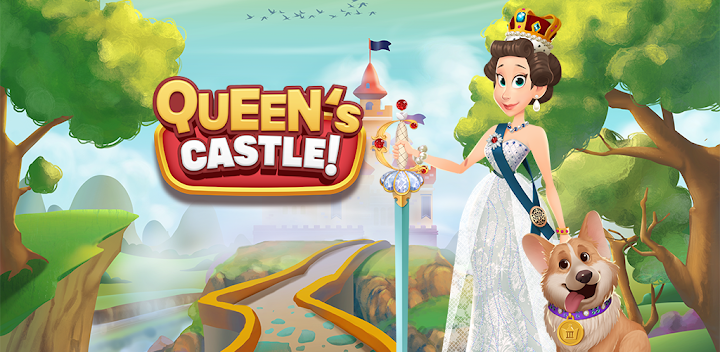World War II was a global conflict that saw nations adopt various strategies and engage in battles across different theaters, from the Blitzkrieg tactics of Germany to the island-hopping campaign in the Pacific. The war ultimately reshaped the world order and had devastating human and material costs.
Introduction
The Second World War was a global conflict that involved many nations and lasted from 1939 to 1945. It was a war characterized by strategic battles and fierce fighting across various theaters of war. In this article, we will explore some of the strategy battles that took place during World War 2 and their significance in shaping the outcome of the war.
The Battle of Stalingrad
One of the most significant and brutal battles of World War 2 was the Battle of Stalingrad. It took place from August 1942 to February 1943, between Nazi Germany and the Soviet Union. The battle was a turning point in the war, as it marked the first major defeat for Nazi Germany and showcased the determination and resilience of the Soviet forces.
The Battle of Stalingrad was a battle of attrition, with both sides suffering heavy casualties. The German army, led by General Friedrich Paulus, initially launched a massive assault on the city, hoping to quickly eliminate Soviet resistance. However, the Soviets, under the leadership of General Georgy Zhukov, fiercely defended their positions and launched counterattacks, forcing the Germans into a protracted and deadly urban warfare.
In the end, the Soviets were able to encircle and trap the German 6th Army in Stalingrad, cutting off their supply lines and subjecting them to a brutal siege. The German army eventually surrendered in February 1943, marking a significant victory for the Soviet Union and a major turning point in the war.
The Battle of Midway
The Battle of Midway, which took place in June 1942, was a pivotal naval battle between the United States and Japan in the Pacific theater. It marked a significant setback for the Japanese navy and turned the tide of the war in favor of the Allies.
The battle began when the Japanese launched an attack on the Midway Atoll, a strategic American outpost in the Pacific. However, thanks to code-breaking efforts, the United States was able to anticipate the Japanese plans and prepare a defense.
The American navy, led by Admiral Chester W. Nimitz, devised a strategy to lure the Japanese fleet into a trap. They sacrificed the aircraft carrier USS Yorktown to divert Japanese attention while launching a surprise attack with their remaining carriers. The American pilots, flying outdated aircraft, managed to inflict heavy damage on the Japanese carriers and destroy many of their planes.
By the end of the battle, Japan had lost four aircraft carriers and many of its experienced pilots. The United States, on the other hand, lost only one carrier. The Battle of Midway proved to be a significant turning point in the Pacific, as it weakened Japan’s naval power and allowed the Allied forces to regain the initiative in the region.
The Battle of Normandy
The Battle of Normandy, commonly known as D-Day, was a massive amphibious assault launched by the Allied forces on June 6, 1944. It marked the beginning of the end for Nazi Germany in Western Europe and paved the way for the liberation of France.
The planning and execution of the D-Day invasion was a remarkable feat of strategy and logistics. The Allied forces, under the command of General Dwight D. Eisenhower, assembled a massive invasion force consisting of over 150,000 troops, thousands of vehicles, and hundreds of aircraft.
The operation involved landing troops on the beaches of Normandy, which were heavily fortified by the German forces. The objective was to secure a foothold on the continent and establish a bridgehead for further operations.
Despite facing fierce resistance and suffering heavy casualties, the Allied forces were able to establish a solid beachhead and gradually push inland. The successful landing at Normandy allowed the Allies to gain a significant strategic advantage and set the stage for the liberation of Western Europe from Nazi control.
The Battle of Berlin
The Battle of Berlin was the final major battle of World War 2 in Europe. It took place from April 16 to May 2, 1945, and resulted in the fall of Nazi Germany and the capture of Berlin by the Soviet Union.
By 1945, Germany was on the brink of defeat, with the Allied forces closing in from the west and the Soviet forces advancing from the east. The Battle of Berlin was a desperate last stand for Hitler and his regime.
The battle was characterized by fierce urban combat, as Soviet forces fought their way through the streets of Berlin against determined German resistance. The city was heavily fortified, and the Germans put up a stubborn defense, leading to heavy casualties on both sides.
In the end, the Soviet forces were able to capture Berlin and raise the Soviet flag over the Reichstag building, symbolizing the fall of Nazi Germany. The Battle of Berlin marked the end of the war in Europe and the beginning of the post-war era.
Conclusion
The strategy battles of World War 2 played a crucial role in shaping the outcome of the war. The Battle of Stalingrad showcased the determination of the Soviet forces and marked a major turning point in the war. The Battle of Midway weakened Japanese naval power and allowed the Allies to regain the initiative in the Pacific. The D-Day invasion at Normandy set the stage for the liberation of Western Europe, and the Battle of Berlin resulted in the fall of Nazi Germany.
These strategic battles demonstrate the importance of planning, leadership, and perseverance in achieving victory in war. They serve as reminders of the courage and sacrifices made by the soldiers and civilians involved in World War 2, and their significance in shaping the course of history.




